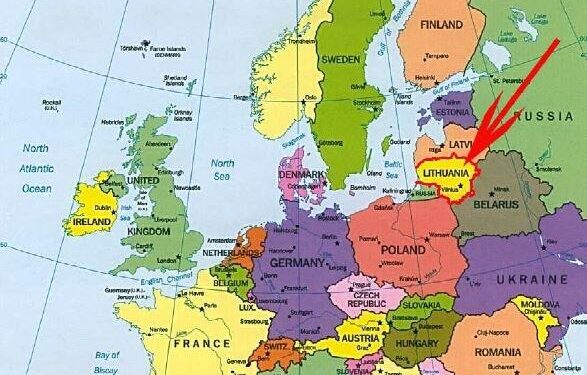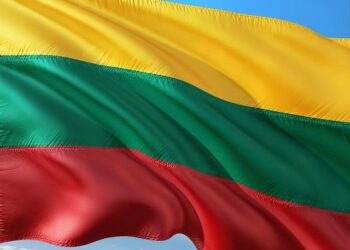Lithuania: The Influence of Lukashenka and Putin on the Belarusian Diaspora
Recently, tensions have escalated between Lithuania and Belarus, wiht alarming reports surfacing from the Belarusian diaspora regarding a series of coordinated harassment incidents purportedly orchestrated by agents linked to the regimes of Alexander Lukashenka and Vladimir Putin. As geopolitical conflicts intensify alongside increasing repression within Belarus, the safety of Belarusians residing in Lithuania has become increasingly threatened. This disturbing trend raises significant concerns about how far foreign powers are willing to extend their influence beyond their borders, highlighting the precarious situation faced by Belarusian activists and their supporters in the Baltic region. While Lithuania grapples with these challenges, its diaspora’s resilience underscores an ongoing struggle for democracy and human rights in Belarus amid efforts to undermine their advocacy. This article examines recent incidents affecting this community, identifies key players involved, and discusses broader implications for regional stability.
Lithuania’s Strategies for Safeguarding Its Belarusian Community
In response to rising threats against its Belarusian population, Lithuania has intensified initiatives aimed at safeguarding this community within its borders. The government acknowledges that targeted campaigns from authorities in Minsk pose significant risks to these individuals‚ÄĒmany of whom fled following contested elections in 2020 that resulted in widespread crackdowns on dissenters back home. To effectively counteract these external pressures, Lithuania is enhancing diplomatic efforts while bolstering intelligence capabilities to monitor potential threats originating from state actors in Belarus.
To further clarify its strategic approach, Lithuania is focusing on several critical areas:
- Legal Protections: Strengthening legislation designed to safeguard diaspora rights while providing avenues for justice against harassment.
- Community Engagement: Establishing platforms for dialog that enhance support initiatives within the local Belarussian community.
- International Collaboration: Partnering with global allies to present a united front against incursions by Belarussian authorities.
- Aware Public Campaigns: Raising awareness about the challenges faced by expatriates as a means of fostering solidarity among local populations.
examining Targeting Tactics Used by lukashenka and Putin Against Exiled Belarusians
The partnership between Alexander Lukashenka‚Äôs regime and Vladimir Putin‚Äôs administration has increasingly focused on exiled Belarusians who openly oppose both governments’ oppressive actions. Evidence indicates a systematic strategy aimed at undermining activities conducted by this diaspora across countries like Lithuania through various methods including doxxing, slanderous tactics, and false narratives. These actions are designed not only to suppress dissent but also manipulate public perception both domestically within belarus as well as internationally. By leveraging state resources along with aggressive intelligence operations, both leaders have cultivated an atmosphere rife with fear among expatriates‚ÄĒprompting some individuals into silence regarding their opposition or activism efforts.
The following strategies illustrate how these regimes escalate targeting against exiles:
- eavesdropping:Monitoring social media platforms where exiled Belarusians gather online for discussions related to political views or activism.
- Court Harassment:Exploiting existing international treaties enabling extradition processes aimed at silencing critics abroad.
- Misinformation Campaigns:Disseminating false facts portraying exiled activists as traitors or foreign agents intent on destabilizing national integrity.
| Tactic Employed | description |
|---|---|
| Doxxing Attempts | Targeting online platforms utilized by exiles disrupting communication channels amongst them. |
| Intimidation Tactics | Employing intimidation directed towards families remaining inside Belarus to deter activism outside. |
| Misinformation Dissemination | Circulating misleading narratives specifically targeting voices advocating change. |
ensuring Human Rights: Recommendations for Lithuanian authorities
The escalating threats facing members of the Belarusian diaspora demand decisive action from Lithuanian authorities committed toward upholding human rights standards domestically . Implementing robust legal frameworks tailored toward minority protections can considerably contribute toward fostering inclusivity throughout society . in this regard , it woudl be prudent for officials consider implementing recommendations such as :
- Enhancing Protection Mechanisms:Strengthening safeguards available specifically targeted toward activists fleeing persecution stemming from authoritarian regimes like those led respectively by Lukashenko & Putin .
- Increasing Collaboration:Partner closely alongside reputable organizations dedicated monitoring violations impacting communities affected directly via oppression .
- Create Task Forces:Create specialized units focusing exclusively addressing hate crimes/discrimination experienced notably amongst vulnerable groups ensuring appropriate legal recourse follows suit.
Moreover , it remains essential cultivate environments promoting solidarity/support systems benefiting those adversely impacted due oppressive governance structures. Educational outreach programs along cultural exchange initiatives could play vital roles raising awareness building empathy citizens surrounding plight faced daily members affected communities .
<>
<>
<>Action Item >
<>Description> >
>
Cultural Exchange Initiatives:</td < create opportunities showcasing art/literature reflecting rich history struggles endured throughout time periods experienced collectively across generations. <tr <
„ÄÄLegal Assistance services :</td <
„ÄÄProviding accessible resources aiding individuals facing intimidation/legal hurdles arising situations encountered regularly during attempts navigate complex systems governing interactions respective countries involved .
        
         
         
      
          
          
          
    ADVERTISEMENT
















